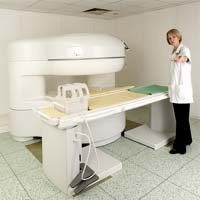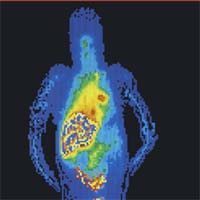Clinical Scan Anxiety before a Mesothelioma Medical Scan? You’re not Alone.
 Many mesothelioma patients with advanced cancer have anxiety before a clinical scan. Clinicians have even coined this clinical scan anxiety as “scanxiety.”
Many mesothelioma patients with advanced cancer have anxiety before a clinical scan. Clinicians have even coined this clinical scan anxiety as “scanxiety.”
A new study published by Supportive Care in Cancer looked at the experiences of scans and scanxiety in patients with advanced cancer. They were looking for the best strategies to reduce clinical scan anxiety or scanxiety.
The research team conducted interviews with 16 patients with advanced cancer. The team asked about anxiety felt during computed tomography (CT) scans for monitoring of their cancer.
Anxiety About the Scan Experience and Scan Results
For these patients, scans were viewed as a routine and normal part of cancer care. This is one of those “necessary evils” that is part of the process. But anxiety related to clinical scans was different for each person.
Most were concerned about what the scan results would say about their cancer. Rather than the experience of the clinical scan itself.
Most patients preferred to get their scan results at the next face-to-face oncology appointment. This allowed them to better gauge and guess the results from their doctor’s face and emotions. Few wanted to receive results by phone or email unless it shorten the anxiety of waiting for results.
General Anxiety for Clinical Scans
For most patients, the scan result appeared to be the main driver of scanxiety. Clinical scan anxiety was also experienced when there was a deviation in the expected process. For example, if someone calls you with a result when you were planning to hear results at your next appointment.
Many mesothelioma patients experienced anxiety as worrisome thoughts about the scan results and their future, mood changes, and low motivation to do usual daily activities. Some patients were irritable or found it hard to concentrate on daily tasks.
Patients also had physical symptoms of anxiety. These included insomnia, fatigue, and nausea.
On the other hand, scans can offer comfort through knowledge and certainty. Patients said that scans offered a concrete assessment of their cancer. This allowed them to feel more empowered about treatment decisions.
Coping Strategies for Scan Anxiety
Patients said that familiarity with scan procedures helped to reduce anxiety. This was especially true as patients developed their own coping strategies over time.
Yet, almost everyone agreed that the very first scan will always cause clinical scan anxiety. There is often so much going on at the first appointment. Most said there was no amount of preparation that could have eliminated anxiety at the first scan.
Some patients used distractions or relaxation techniques to reduce anxiety during clinical scans. Others used positive self-talk or sought professional help. Others just closed their eyes during the whole procedure.
The use of anti-anxiety medications were considered helpful by some patients. Though some said the drugs made them feel silly.
Some preferred to keep their family or friends close. The role of support networks was helpful. But others wanted to be alone because their family or friends also had anxiety about the scan.
Patients with advanced cancer often experience anxiety leading up to, during, and after clinical scans. But there are many coping strategies that could help to reduce this scanxiety.
Source
Bui, Kim Tam, Prunella Blinman, Belinda E. Kiely, Chris Brown, and Haryana M. Dhillon. “Experiences with scans and scanxiety in people with advanced cancer: a qualitative study.” Supportive Care in Cancer 29, no. 12 (2021): 7441-7449. https://doi.org/10.1007/s00520-021-06319-1





